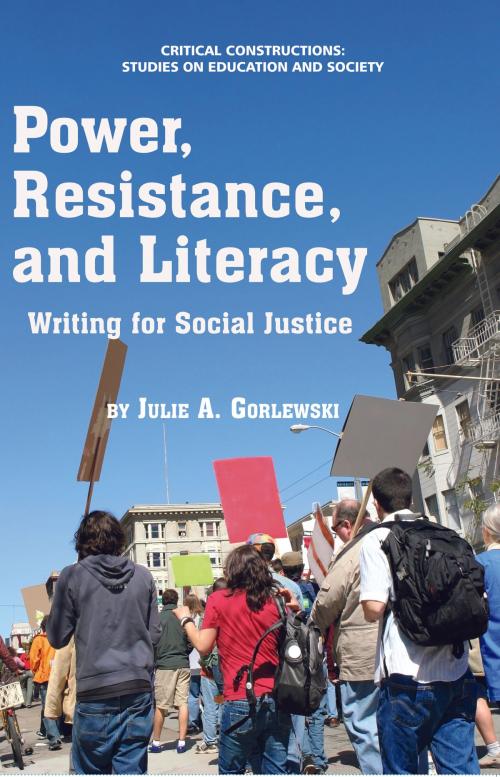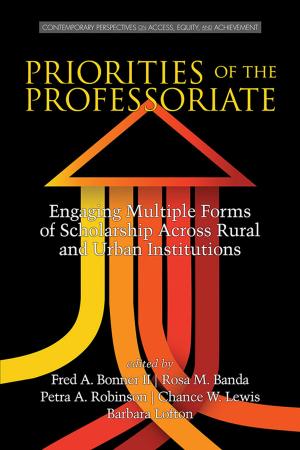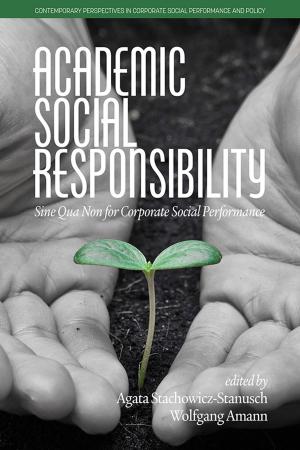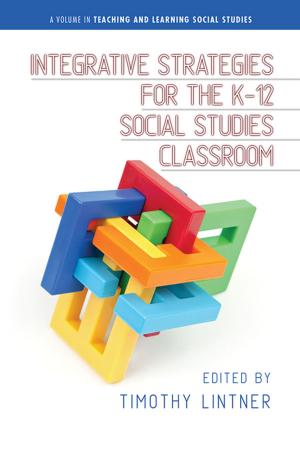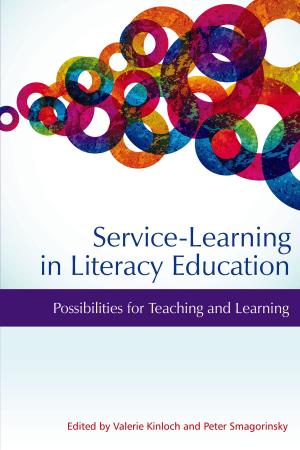Power, Resistance, and Literacy
Writing for Social Justice
Nonfiction, Reference & Language, Language Arts, Public Speaking, Rhetoric, Literacy, Education & Teaching| Author: | ISBN: | 9781617354076 | |
| Publisher: | Information Age Publishing | Publication: | July 1, 2011 |
| Imprint: | Information Age Publishing | Language: | English |
| Author: | |
| ISBN: | 9781617354076 |
| Publisher: | Information Age Publishing |
| Publication: | July 1, 2011 |
| Imprint: | Information Age Publishing |
| Language: | English |
Students in public schools serving poor and workingclass students are inundated by the effects of highstakes examinations. Teachers are demoralized and students suffer substandard curricular and pedagogical experiences. These effects are articulated by students and teachers in the high school that provided the setting for the critical ethnography on which this text is based. Teachers resent being judged on the basis of students’ performance on standardized assessments. They are deprofessionalized as their roles are oriented toward workingclass norms. Students feel alienated by content that is meaningless and testbased pedagogies that are disempowering. While these findings are disturbing, critical theory provides a foundation for seeking hope. By incorporating inquiry and dialogue, this theoretical framework opens a space where resistance can be revealed and examined. In this case, the study exposed glimmers of resistance, spaces in the structure of schooling where students and teachers critique the system and suggest ways of subverting the negative effects of the neoliberal reforms through dialogic, empowering, culturally responsive pedagogies. Collective resistance, achieved through dialogic pedagogies that build on understandings of resistance and power, can cultivate theoretical and material spaces where a cycle of praxis can enhance possibilities for social justice. To that end, the conclusion is devoted to the implementation of critical, dialogic approaches to literacies, approaches intended to interrupt the hegemonic influences that perpetuate social reproduction by capitalizing on the potential for solidarity and collective agency among the students and teachers who populate and educate the working classes. This book would interest teacher educators, teachers, and school administrators.
Students in public schools serving poor and workingclass students are inundated by the effects of highstakes examinations. Teachers are demoralized and students suffer substandard curricular and pedagogical experiences. These effects are articulated by students and teachers in the high school that provided the setting for the critical ethnography on which this text is based. Teachers resent being judged on the basis of students’ performance on standardized assessments. They are deprofessionalized as their roles are oriented toward workingclass norms. Students feel alienated by content that is meaningless and testbased pedagogies that are disempowering. While these findings are disturbing, critical theory provides a foundation for seeking hope. By incorporating inquiry and dialogue, this theoretical framework opens a space where resistance can be revealed and examined. In this case, the study exposed glimmers of resistance, spaces in the structure of schooling where students and teachers critique the system and suggest ways of subverting the negative effects of the neoliberal reforms through dialogic, empowering, culturally responsive pedagogies. Collective resistance, achieved through dialogic pedagogies that build on understandings of resistance and power, can cultivate theoretical and material spaces where a cycle of praxis can enhance possibilities for social justice. To that end, the conclusion is devoted to the implementation of critical, dialogic approaches to literacies, approaches intended to interrupt the hegemonic influences that perpetuate social reproduction by capitalizing on the potential for solidarity and collective agency among the students and teachers who populate and educate the working classes. This book would interest teacher educators, teachers, and school administrators.
